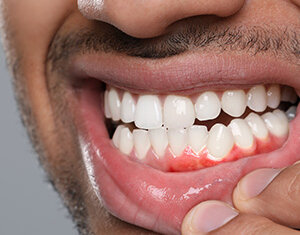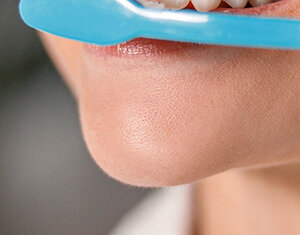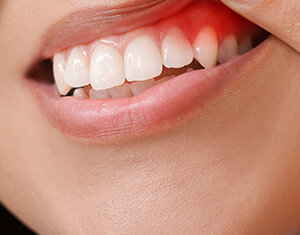Blog
The Importance Of Oral Hygiene: Maintaining A Healthy Smile
Oral Care
 Oral health is an important aspect of overall well-being but is often overlooked. It is important to raise public awareness about the significance of good oral hygiene. This guide provides information on the science of mouth cleanliness, how it contributes to the body's balance, and evidence-based tips for preventing diseases. It helps individuals make informed decisions about their oral health and overall quality of life by encouraging them to commit to comprehensive care on a daily basis. In this article, we will learn the clinical perspectives and practical tips for oral hygiene.
Oral health is an important aspect of overall well-being but is often overlooked. It is important to raise public awareness about the significance of good oral hygiene. This guide provides information on the science of mouth cleanliness, how it contributes to the body's balance, and evidence-based tips for preventing diseases. It helps individuals make informed decisions about their oral health and overall quality of life by encouraging them to commit to comprehensive care on a daily basis. In this article, we will learn the clinical perspectives and practical tips for oral hygiene.
Understanding the Purpose of Mouth Care
Daily mouth care is often underestimated, but it is crucial for maintaining good oral health in both the short and long term. Neglecting your mouth care routine can result in disease-causing bacteria that can lead to tooth loss and inflamed gums.
Effective brushing and cleaning using the right techniques and products can help prevent decay and gum infections, which are among the most common dental issues worldwide. By taking care of your oral health, you can avoid costly dental treatments and enjoy fresher breaths for added confidence.
The Purpose of Oral Hygiene
Although the main goal of brushing and flossing is to maintain good oral hygiene and dental health, their positive effects on overall wellness are extensive. If we fail to remove plaque buildup, it can lead to systemic inflammation through the bloodstream, allowing periodontal pathogens to increase the risks of cardiovascular disease, diabetes, and cancer. Therefore, apart from helping us chew, taste, and smile, practising evidence-based hygiene habits can significantly enhance our overall health.
The Importance of Oral Hygiene
Maintaining good oral hygiene is not just about cosmetic appeal or chewing ease, but it also offers overall health benefits. By actively disrupting the mouth bacteria films that attack enamel, brushing and flossing limit acid demineralisation, which helps preserve tooth structure and function. This also helps to control microbiome balance by removing the plaque before it penetrates gum pockets, thereby altering disease trajectories substantially.
By controlling microbiome balance, inflammation pathways to distant organs can be halted, improving overall health. Therefore, safeguarding localised health through rigorous oral hygiene can cascade into improving overall health and vitality through simple daily steps:
- Prevention of Oral Diseases: Routine care drastically reduces tooth decay, gum disease and infection risks hampering nutrition.
- Protection Against Systemic Diseases: Practising good hygiene can help protect against systemic diseases, such as cardiovascular disease, diabetes, and Alzheimer's, by reducing the transmission of harmful oral bacteria.
- Improving Overall Well-being: Facilitating pain-free and embarrassment-free eating promotes better physical health.
- Boost in Self-Esteem and Confidence: Having a clean and bright smile can boost your self-esteem and confidence, which can lead to better success in your relationships.
Oral Hygiene Procedures
Beyond cosmetic and sensory roles enabling clear speech and pleasurable tastes, the mouth offers a window into whole-body wellness with poor oral cleanliness, allowing inflammation passageways that trigger a cardiovascular, glycemic, and neurocognitive decline.
Thereby upholding oral equilibrium cascades and preventing ubiquitous afflictions. With oral disease easily ranking among the most prevalent preventable conditions globally despite simple home and professional care sufficing for containment, public awareness warrants a spotlight.
-
Brushing Teeth
Frequency: Brushing teeth with Dabur Meswak after meals and before bed disrupts debris, allowing bacterial regeneration overnight.
Technique: Soft bristles with fluoride toothpaste using gentle motion to prevent abrasions while still clearing plaque.
Duration: Two minutes evenly across all tooth surfaces sufficiently removes biofilm buildup twice daily.
-
Flossing
Importance: Flossing daily clears packed residue between teeth, preventing inflammatory pockets.
Method: Curving floss around each tooth edge emulsifies hidden plaque under the gumline.
Duration: Two minutes evenly across all tooth surfaces sufficiently removes biofilm buildup twice daily.
-
Using Mouthwash
Benefits: Rinsing reaches corner crannies, augmenting mechanical disruption of clingy germ colonies.
Selection:Desire antiseptic formulas actively combatting periodontal pathogens rather than cosmetic variants alone.
FAQs
-
Why is oral hygiene important?
Oral hygiene is essential for preventing tooth decay, gum disease, and other infections that can impair chewing, speech, and overall nutrition while enabling pathogens to spread throughout the body.
-
What are the key steps for caring for your mouth?
Essential daily oral care includes:
- Brushing teeth thoroughly twice with a soft brush and fluoride paste.
- Flossing to clear plaque from between teeth.
- Gently cleaning the tongue of bacteria buildup.
- Using antimicrobial mouthwash for fuller hygiene coverage unreachable by mechanical motions alone.
-
How often should you replace your toothbrush?
Replace your toothbrush every 3-4 months to maintain its cleaning efficiency and prevent bacteria buildup.
-
Why continue dental visits if brushing diligently at home?
Professional removal of calculus deposits and early screenings are essential for oral health.
-
How does eating impact oral wellness?
Sugary and acidic foods cause tooth decay. Eat crunchy fruits, vegetables, and dairy to improve oral resistance and maintain a balanced, healthy diet.























